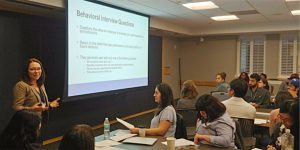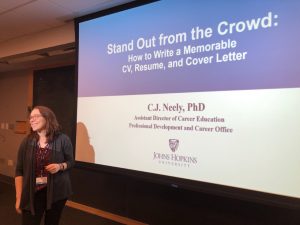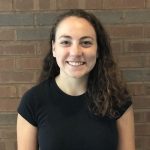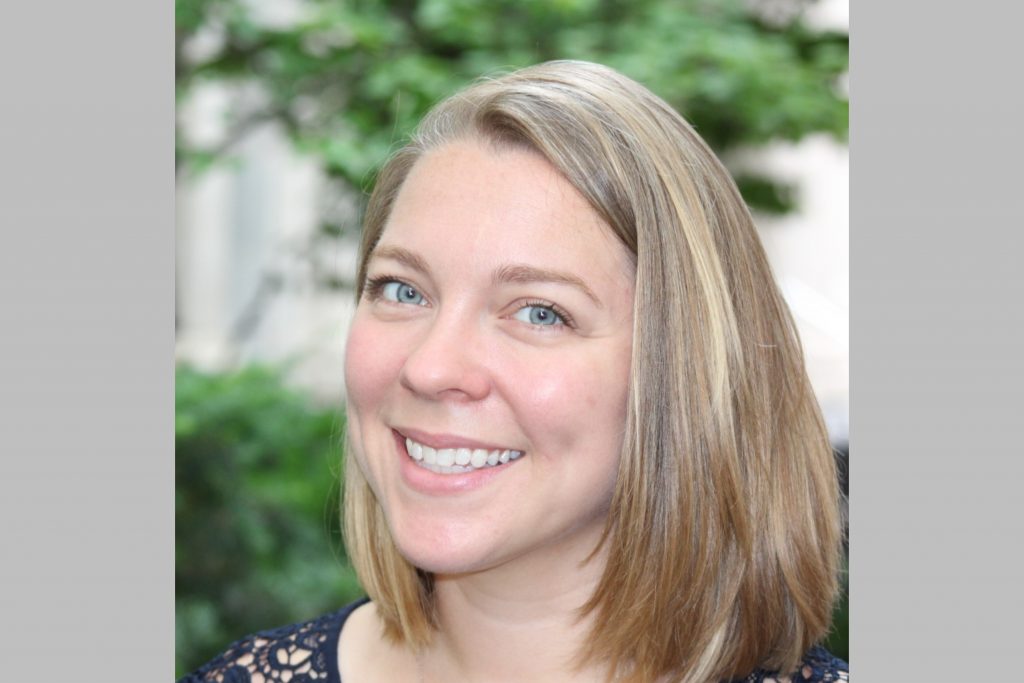In the Decoding Life series, we talk to geneticists with diverse career paths, tracing the many directions possible after research training. This series is brought to you by the GSA Early Career Scientist Career Development Subcommittee.
CJ Neely is a certified career coach and Assistant Director of Career Education at Johns Hopkins Medical Institute. She has a PhD in Microbiology and Immunology from The University of North Carolina at Chapel Hill, and was a postdoctoral fellow at St. Jude Children’s Research Hospital. While serving on the Postdoctoral Leadership Council at St. Jude, she found her passion for career development.
What career did you imagine you would have when you were a graduate student and postdoc?
I became interested in research early on as an undergraduate at Towson University. I was able to gain hands-on experience working in multiple labs while in college and loved it. One of my professors encouraged me to pursue a PhD, which I didn’t even think was a possibility. After applying and receiving multiple offers, I started grad school at UNC with the goal of becoming a PI at a primarily undergraduate institution (PUI). I wanted to inspire the next generation in the same way my professors did for me. However, at UNC I was enthralled with the research, and I didn’t think it was feasible to continue this type of work at a PUI. At that point, my interests shifted to being a PI at an R1 institution.
 I then did a postdoc at St. Jude, where I was looking to develop new skills and improve my grant writing. I was strategic and went to a lab that had a history of moving postdocs into faculty roles. However, I found that my graduate school experience and postdoc experience were very different. In my graduate lab, I was the first grad student. I spent a lot of time training others in the lab, and I was encouraged to serve on committees and present at conferences. On the other hand, as a postdoc, my focus was to get the project off the ground and develop research independence. In the process, I realized I wasn’t really happy doing all of the things I needed to do to become a PI. This is when I started to look for careers outside of the lab that mimicked the aspects of graduate school I enjoyed the most.
I then did a postdoc at St. Jude, where I was looking to develop new skills and improve my grant writing. I was strategic and went to a lab that had a history of moving postdocs into faculty roles. However, I found that my graduate school experience and postdoc experience were very different. In my graduate lab, I was the first grad student. I spent a lot of time training others in the lab, and I was encouraged to serve on committees and present at conferences. On the other hand, as a postdoc, my focus was to get the project off the ground and develop research independence. In the process, I realized I wasn’t really happy doing all of the things I needed to do to become a PI. This is when I started to look for careers outside of the lab that mimicked the aspects of graduate school I enjoyed the most.
How did you decide to pursue a career in professional development?
Once I realized there was a misalignment between my interests and career trajectory, I started to look into professional development resources. The only resources available at St. Jude at the time were developed by postdocs on the Postdoc Leadership Council. There was a role available as the Chair of Career Development, so I ran and was elected for that position. As the Chair, I created a career discovery series, where I brought in local PhD professionals to discuss their career paths and current roles in more detail. I found that a lot of the careers were interesting on paper, but when I learned more about them, they just weren’t what I was looking for.
One day, our postdoc coordinator asked me, “What are you doing when you get lost in your work and lose track of time? What makes you feel built up instead of depleted?” It was everything that I was doing for the Postdoc Leadership Council. She reminded me that it was a real job! Before that, it didn’t click that there were people with PhDs who were working in professional development and academic administration roles.
It’s interesting that from the beginning your interest in research was based in wanting to inspire the next generation, and that’s what you are doing now.
Yes, just in a different way than I initially envisioned. I think that if I was more self-aware and listened to what I wanted to do instead of what I thought I should do, it wouldn’t have taken me so long to get where I am now. I needed to be honest with myself about my strengths and interests. While I find research incredibly fascinating, sitting at the bench or leading a research team is not where I am most fulfilled. It did take me a while to mourn the loss of leaving academia because I had invested so much time, and a lot of my identity was wrapped up in being a scientist. Even though I was ready to make the transition, it was a hard process to go through and likely why it took so long.
Can you describe what you do in your position now?
I manage a PhD Career Curriculum called OPTIONS. This involves program management, event planning, and building relationships with various stakeholders, such as senior leadership, faculty, alumni, and other PhD professionals. The other side of my role is providing one-on-one career coaching to early career scientists. Career coaching is about listening to the other person. Earning my career coach certification has taught me the importance of talking less, asking powerful questions, and guiding individuals through the process rather than telling them what to do. The goal is to empower early career scientists to make informed decisions and take action.
What skills have you brought from your graduate school and postdoc experiences?
In graduate school and as a postdoc, I learned how to stay organized, manage competing priorities, lead an effective meeting, make persuasive arguments, and communicate effectively. All of these skills are essential to my current position.

How were you able to balance pursuing and exploring your career outside of academia while you were fulfilling your duties as a postdoc?
It’s not easy. The earlier you start the more time you can work on it. If you can take the approach of “the tortoise vs. the hare,” you can work on it slowly without committing a lot of time each week. For me, because I had taken on a career development role on the St. Jude Postdoc Leadership Council, there was a certain commitment to researching careers and developing relevant programming. So, I would work full time in the lab and then often spend another 10 hours per week on this extracurricular activity. I enjoyed it so much that I was probably putting more time in than I needed to. For me, that was a big indicator that I was tapping into something that I really needed to consider as a career.
What are some issues that you see coming up for a lot of early career scientists while they’re exploring their career options?
A problem I often see is that early career scientists don’t commit enough time to career exploration. They’re in a PhD program to become an independent scientist, so research comes first, and I wholeheartedly support that. However, you do need to take time throughout your training to really think about your next steps. Many early career scientists wait until their last thesis committee meeting when they have six months left in their program to start this process. At this point they are feeling so much pressure, it’s hard to think straight. It’s easy to take the “lowest hanging fruit”—the first opportunity that comes along. For example, some pursue a postdoc by default and then fall into a pattern where—three years later—they are no closer to figuring out what they want to do. By spending more time exploring career options, you can be more intentional and confident with your career decisions.
What is your advice for people like this?
Protect time for career exploration and professional development. If that means you need to add it to your calendar like any other meeting, do so. Also, most of us will have multiple “careers” in our lifetime. So rather than trying to figure it all out, let curiosity lead you to your next step.
About the author:
Abigail DiVito is a member of the Early Career Scientist Career Development Committee and a Graduate Student at the University of Pennsylvania. She is currently researching reproductive arrest and germline aging, and hopes to work in intellectual property.
Learn more about the GSA’s Early Career Scientist Leadership Program.













